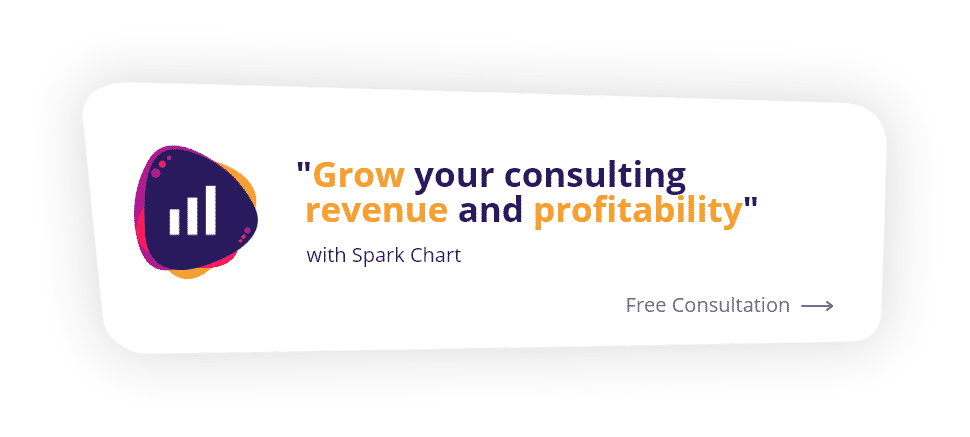The Best Tools for Business Consultants

What Business Consulting Tools are you Using?
Regardless of whether you’re working for yourself or running a business consultancy with support staff, you need the best consulting tools. Fortunately, we live in a world where there are so many digital solutions out there – can you imagine doing everything you do on paper? The fact is, everything from finding to clients to running projects requires you have the best tools available. Without them, you’ll be trying to juggle too many things and end up mastering none.
Here are some of the key business consulting tools you need for your business consultancy.
Survey Software is one of the Best Tools for Business Consultants to Start With
If you’re working as a business consultant, you’ll know how important it is to have quality information available. If you don’t, it can feel like you’re working in the dark and your efforts will be impacted as a result. As a consultant, you often have a limited understanding of the issues facing a potential or at the beginning of work with a new client. Surveys are a valuable tool for business consultants to very quickly gather information and data that can be used to help identify priorities and guide your client.
Customer surveys can identify issues within the services and products being provided. Employee surveys can find out what the people on the front-line would like to see improved. A SWOT Analysis survey is quick, simple and easy to conduct. It is typically performed in a brainstorming session. However, a pre workshop SWOT surveys can enhance the quality of the analysis. A major benefit is the speed with which you can engage key people and get their knowledge and ideas. Net Promoter Score® (NPS®) is a powerful tool to assess customer loyalty and asks a simple question ‘How likely are you to recommend this product or service to a friend or colleague?’. A Leadership Team survey A leadership team survey is designed specifically for leaders and managers to consider how they’re working as a group. It isn’t about highlighting the deficits of individual leaders, but rather about checking how the entire leadership group is performing collectively. There is a raft of other surveys that can be valuable, like 360 degree feedback, board surveys, training needs analysis, etc.
Once you identify areas of a business that need further investigation and attention, that’s where you can justify your service offering. If the data gleaned from your surveys shows an obvious problem, clients are more likely to engage you for ongoing work.
Surveys are cheap and fast to conduct. You can find easy-to-use, customisable surveys that you can save and use with all your clients. We offer these at Spark Chart, and they’ve helped plenty of business consultants grow their business.
Benchmarking Tools
Benchmarking is another one of the services you could find yourself doing for clients. This is the process where you essentially compare your client to their competitors. The factors you’ll look at will usually include:
- Productions costs
- Process cycle time
- Revenues
- Employee turnover
As part of this process, you may even benchmark your client against leaders in their industry, even if they’re not a direct competitor. This would be done to see what is needed to achieve absolute long-term success.
This isn’t necessarily a digital tool, but more an accepted process that all business consultants need to learn. To ensure your benchmarking really has an impact, you’ll need to develop an easy way to display and present the information to your clients.
An Affordable CRM Solution
A customer relationship management (CRM) system is essential to the modern business consultant. A CRM essentially helps manage your marketing and advertising activities. In fact, it can manage all your customers’ interactions with your business. It allows you to see everything in one place – leads, sales, where clients are in terms of their customer experience. Basically, it manages your relationship with customers.
When it comes to generating more leads, converting leads into active customers, and following up on client issues, a CRM is invaluable. Some of the more popular systems include Zoho, Salesforce, Pipedrive and HubSpot. Do some research, and discover which platform is best to manage your customers moving forward.
SWOT Analysis
We touched on benchmarking before. SWOT analysis is in the same realm as one of the most invaluable tools for consultants. However, SWOT Analysis it is more focused on a business or department as a whole, whereas benchmarking can be done for individual processes.
SWOT stands for Strengths, Weaknesses, Opportunities and Threats. When meeting with clients, a great first step is to ask the management team to participate in a SWOT analysis. You’re asking them to take an honest look at where their strengths lie and what their weaknesses are. They can also identify opportunities, and potential threats to their business.
Not only does it get your clients thinking in a broad, strategic way, but it also gives you valuable insight into where they feel their business is at. Spark Chart offers easily customisable SWOT analysis survey tools to make this process a breeze.
Using a Balanced Scorecard
A balanced scorecard is a way to measure measure organisational performance, but not just your standard costs and income. The balanced scorecard gives you a comprehensive set of measures that can be tracked and monitored over time. This is particularly valuable for measuring results of the work you do to re-shape a client’s strategic direction.
The balanced scorecard may include metrics such as:
- Market share
- Revenue
- Staff engagement
- Earnings
- Customer satisfaction
- Quality
You might also associate these metrics with another popular term these days, being ‘organisational health’. Understanding these metrics and how to measure them at different points in your journey with that client is essential for future strategic growth. As an added bonus, it gives you a great snapshot of the successes you’ve had, which can be used as a selling point for future clients.
Time Tracking Tools
As your consultancy business grows, you’ll spend a lot of time jumping between clients. An hour here working on survey results for one, an hour there meeting with another. It can become difficult to keep track of and can create a nightmare when it comes time to send out your bills.
Using a time tracking tool such as TimeCamp or something similar can be invaluable, especially if you’re working on an hourly rate. If you’re not, tools like this are still valuable for future business planning. For example, if you have two clients, each paying the same flat fee, but you spend 75% of your time on one of them, something is off kilter. This data may be able to guide you to bill differently in future, or target your marketing towards the type of clients that take up less of your time for the same income.
Employee Pulse Surveys
What better way to get a hands-on view of how a business is going than to ask the staff directly? The people on the ground, so to speak, often have a great deal of insight into how things can be improved. Their view may not always be heard, but employee pulse surveys present a chance to get their ideas through to management.
It’s not just in operational matters where staff can be valuable, though. Staff morale, or staff engagement is crucial to a company’s success. Teams of highly engaged individuals are known to be more productive and produce more profits. So, if something isn’t going well in the workforce, your client needs to know.
Project Management Software
Having a solid project management system in place can make life so much easier, especially if your consulting takes a very collaborative approach. Whether you just need to organise your own team, or even if you want to get your client involved in the process, project management tools can make the job much more efficient.
The key with business consulting software like this is to make data available to multiple people, assign tasks accordingly, and track progress. There are plenty of tools around, with popular ones being Asana, Trello, or Monday.com. Explore which one works best for you, and take control of your consultancy projects.
The job of a business consultant is so multi-faceted, you will find it hard to keep up with all of your tasks. However, with the best consulting tools, you can make your life a whole lot easier. Some consulting tools are essential to getting a snapshot of your client’s business, while others help to run yours.
Lead Generation Tools
There are many extremely useful tools for generating more leads and finding out contact details. There are tools that can help you find detailed information about potential prospects, verify email addresses, leverage social media profiles, narrow down a market, segment prospects and create very targeted email campaigns. Automating emails to potential target clients saves time. Technology is now available to do this very effectively at low cost and with a high return on the investment.
Net Promoter Score® (NPS®)
Net Promoter Score® (NPS®) is one of the best consulting tools to get clients focused on measuring their customer satisfaction and loyalty.
So, what Business Consulting Tools are you Using?
Make sure the business consulting tools you use make your life easier, not more complicated. You can find more consulting tools and ideas here.
Net Promoter, Net Promoter System, Net Promoter Score, NPS, and the NPS-related emoticons are registered trademarks of Bain & Company, Inc., Fred Reichheld, and Satmetrix Systems, Inc.




